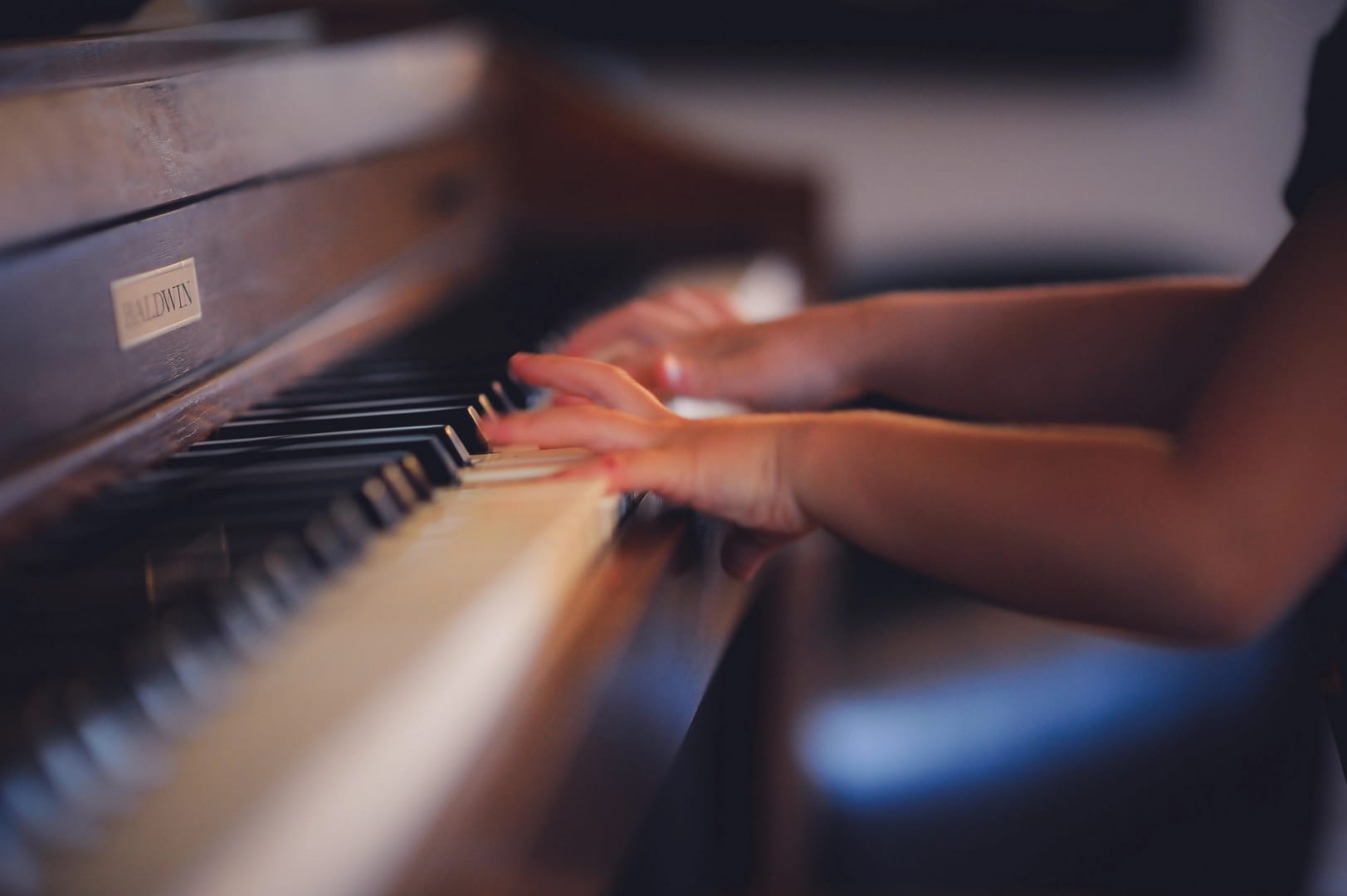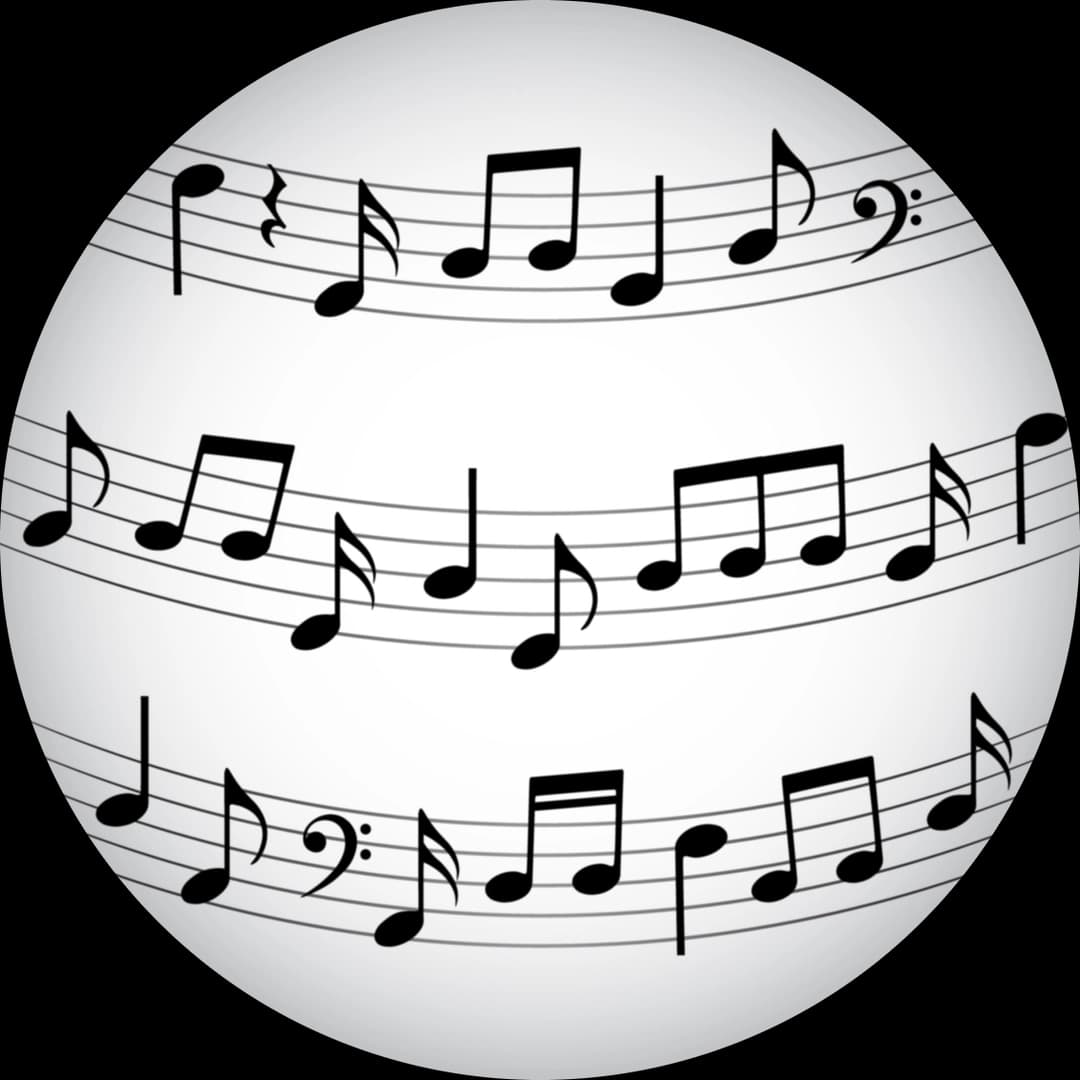
articles / Community
Ask KDFC: What First Sparked Your Love of Classical?

We’re falling in love with classical music all over again during KDFC’s Love at First Listen! We asked for the stories behind the pieces that kicked off your love of classical music, so it’s only fair we share ours! Scroll down for stories from the KDFC staff.
Jennifer Miller
I started studying piano when I was five years old. When I was 13, my teacher decided it was time to put a Beethoven piano sonata in front of me to see what I could do. Her choice? No. 8, the Pathetique. The first and third movements scared me to death, but as soon as I started working my way through the second movement I was sold. It was like moving through a rainstorm in the summer – gentle, then more forceful, then gentle again. I played that movement almost daily for over a year, and still revisit to this day. Did I ever conquer the other movements? I’ll leave that to your imagination.
Dianne Nicolini
What happens in France…
I did not grow up in a house with classical music. It was Trini Lopez, Herb Alpert & the Tijuana Brass, and Sinatra, Sinatra, Sinatra. My older sisters brought The Beatles into my world, as well as Jefferson Airplane, Chicago, and Crosby, Stills & Nash. All great. I mark my true induction into the world of classical music on a trip to France during my junior year of college. I was on a bus with about 30 other kids from the UC’s, making a circular tour of the country in preparation for spending a year studying abroad. I was just nerdy enough (and prone to car-sickness) to be sitting just behind the driver, when at one point I heard this sound coming from the back of the bus. It was Efrain from UC Davis playing something on his massive boom box. What I always go back to about that moment is that I didn’t immediately think of what I was hearing as music. It was so much more. It seemed to pour itself over me like some invisible cascade of feeling: Exuberance, beauty, energy, complexity. That was my first time hearing Bach’s Brandenburg Concertos. I would never be the same. Now when I’m presenting music on the radio, I always try to remember that, although I may have heard a piece a thousand times before, for some listeners out there in the radio audience, it is their first time!
Robin Pressman
Mickey Mouse made me fall in love with classical music. I can’t remember what age I was when I first witnessed the wonder of Fantasia – but I do know that I was NOT a fan of Night on Bald Mountain. Way too scary! I was already terrified by the annual television appearance of the Wicked Witch of the West so was not about to add another frightful image to my impressionable kid brain. But the glee of Mickey Mouse testing his magical powers, and the “oops” thrill of those endlessly replicating brooms, made me sit up and take notice of the power of music to tell stories and paint pictures.
Rik Malone
I don’t ever remember not liking classical music, and I fully own my adolescence as a “classical geek”! My parents used to say that, when I was an infant, I would sit under the piano while my mother practiced until I finally said: “I want to learn how to do that” (I was about 3). But the first piece of music that made a lasting impression on me was Smetana’s The Moldau (Vltava) – I remember that Captain Kangaroo’s TV show had a segment that must have been one of the first concept videos for classical music. Beginning with a few drops of dew on a leaf, a little rainfall hitting the forest floor, and rivulets of water becoming a little brook, it followed the stream until it became a mighty river flowing right through the center of a great city – the way the real Vltava flows through Prague. It’s still one of my all-time favorite pieces.
Lara Downes
It’s almost a physical memory… I’m maybe 4 or 5, sitting with my dad as he listened to Glenn Gould’s Goldberg Variations (the 1955 recording!) in the big Eames chair in our living room. I remember poring over the album cover – that iconic contact sheet of the young Gould in the studio – listening to the soft crackle of vinyl through the crisp elegance of Gould’s playing, feeling my dad’s profound connection to the recording, and just feeling happily sheltered in the special space that the music created for us to be together.
Jeffrey Freymann
I came to classical music from a number of different angles.
Like many others, I probably became familiar with some of the classics via the lens of Bugs Bunny cartoons (and also have a good knowledge of the Warner Brothers-owned popular songs of the 1930s and ‘40s because of that too.) But Peanuts also got me specifically interested in Beethoven – both from the comic strips (we had a lot of the paperback anthologies as I was growing up) and also because when I was in third grade, my school put on “You’re a Good Man, Charlie Brown,” which includes a song Lucy sings to Schroeder as he’s playing the Moonlight Sonata. Later my sister (and then several years later, I) would play the opening movement of that sonata in piano lessons. I eventually made it as far as Rachmaninoff’s Prelude in C# minor, which I decided I wanted to play when I saw that the score at one point, as you turn a page, suddenly breaks into an open-score, with two treble clefs and two bass clefs.
I also became introduced to many of the first Bach pieces I knew of through the ground-breaking ‘Switched-On Bach’ recordings, which also made me want to learn the F Major 2-Part invention, so I could play it at breakneck speed. (And subsequently inspired me to get a series of synthesizers).
I had sung in a church choir when I was growing up, but never really knew what I was doing – it wasn’t until I was a freshman in high school when a friend of mine, who was a year older, suggested to the choir conductor that I might want to join. (My friend had no reason to think or know that I might be interested) I was called to the conductor’s office and was ready to pass on the offer, but then learned that the choir was planning a European trip in the spring. We sang madrigals, like Thomas Morley’s Nolo mortem peccatoris and Palestrina’s Sicut Cervus – but also Vivaldi’s Gloria, which our choir sang movements from, in Notre Dame cathedral during the tour that lured me in the first place. I continued to sing in choral groups through college, and love choral music to this day.
Alan Chapman
One of the first pieces that implanted itself in my brain was an opera overture. As a youngster, I had an LP (remember them?) of famous overtures. The one that grabbed me was Louis Ferdinand Hérold’s Zampa Overture, one of those high energy curtain-raisers. And it wasn’t just the melody. I still remember my ears being drawn to the accompaniment (a bunch of brass). It wasn’t until many years later that I looked into the story of the opera and learned that it ends with the title character being crushed in the marble arms of a statue as Mount Etna erupts in the background.
Brian Lauritzen
It’s difficult to say what exactly got me hooked on classical music. The first piece of music I truly loved was Schubert’s Symphony No. 9. As a nine-year-old, I was obsessed with this symphony. I loved the entire hour-long work, but I had a particular fondness for the electricity of the finale. My recording was a cassette of George Szell and the Cleveland Orchestra. I had one of those cassette decks with a three-digit counter that had no relationship whatsoever to time—it was just numbers that rolled by as the music played. (I since learned that those numbers relate to the number of revolutions of the reel.) The first two movements were on one side of the cassette and the last two movements were on the other side. I had memorized exactly where on the counter the finale started, provided I zeroed out the display at the beginning of the third movement. So, I would fast-forward to the finale and listen to it. Then, I’d rewind to the proper spot on the counter and listen again. And again. Looking back, I think what drew me to this particular music was the mesmerizing intricacy of what was happening in the strings (almost impossibly fast arpeggios) in conjunction with the intense, but not overwhelming power of what was going on in the brass. I loved the fact that the entire finale sets you up for the big climax of four unison notes. That was where I learned about differences in recordings and interpretation. I would call my local radio station’s request line and ask for Schubert’s Symphony No. 9 and I would wait for those four notes to see how the particular recording the host chose that night played that moment in the piece. I suppose that experience might also be responsible for my early love of radio as well.
Rich Capparela
It was the sixties and, rather than be gently finessed into liking classical music, I needed to be thoroughly bludgeoned into submission. Enter Siegfried and company. My first classical music love was Wagner’s Ring – all 16 hours of it; listened to on headphones in 45-minute snatches during free periods in high school amid coffee-drinking adults in the English teachers’ faculty lounge. When at last the world had been purged by one woman’s sacrifice and the gold was returned to its rightful owners, I was transformed. A sobbing mess. Truly I was not the same person I was when I had started listening to The Ring a few months earlier. I knew then without a doubt that I had to stay as close to this state of clarity, of meaning, of significance as humanly possible. It was at that moment, at age 17, that I made the decision to become a classical radio announcer. What better way to keep the music upfront than a career like that? So far, that plan has worked out fairly well. Thanks, Mr. Wagner.
Bill Lueth
At nineteen I was studying to be an opera singer. I knew very little about it, but apparently could make the sound, and decided to take a swing at becoming a professional singer. I attended a performance of the Metropolitan Opera on Tour in Minneapolis presenting Wagner’s Die Walkure. Like most of us, I knew the famous Ride, and the ‘wo-ta-hos’ of the Valkyries, but hearing this live was a life changer. The monstrous sounds of the Wagner tubas in person filled me with adrenaline. The sheer volume of the women singing their famous battle cry created a thrill. The majesty of Wotan’s bass-baritone became my inspiration. By the time I got to grad school, I had found the beginnings of my career in radio, but this was the turning point for my inevitable life-long love with opera.






